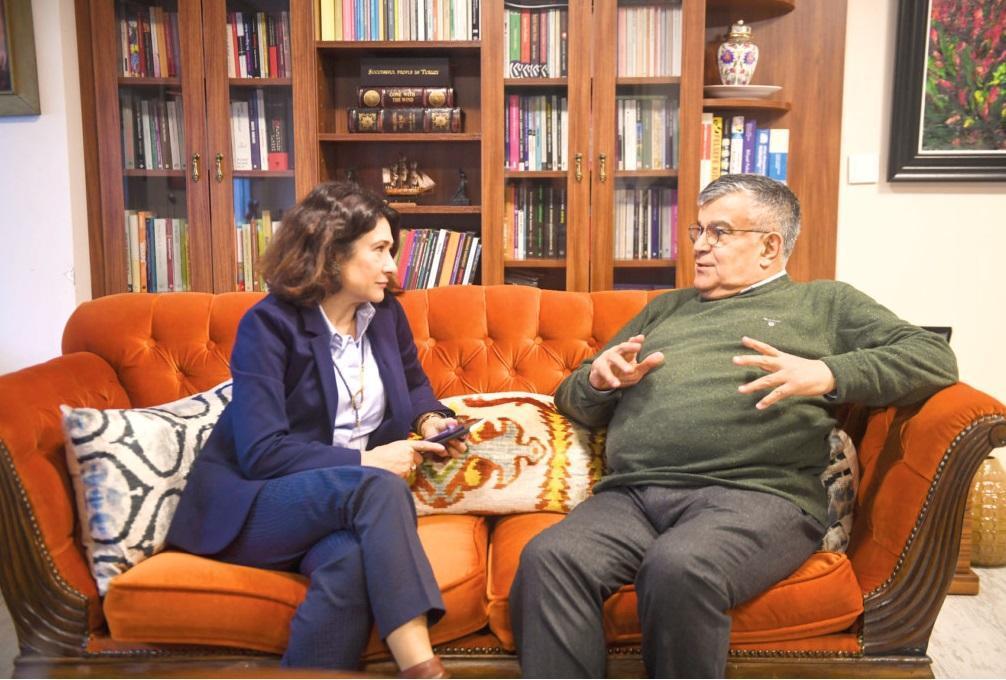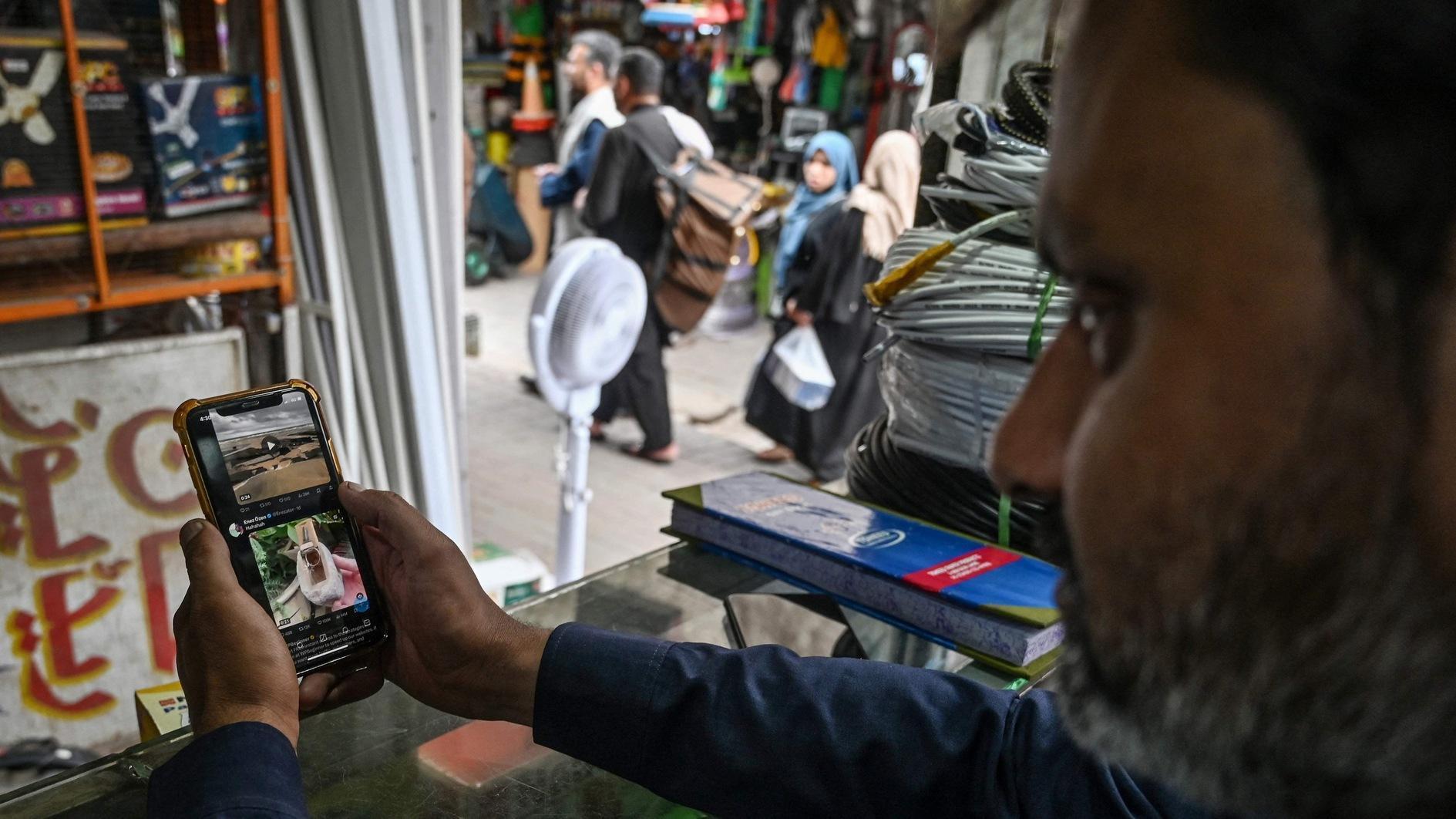‘Rising signs of depression, in Turkey’ warns medical expert
Barçın Yinanç - ISTANBUL

According to data from the Health Ministry, increasing number of people in Turkey suffer from depression, said Professor Mansur Beyazyürek. “Independent of their socio-economic level or political views Turks give signs of depression; this is across the board phenomenon,” Beyazyürek told Hürriyet Daily News.
What do you see when you look at the mental health of Turkish society? What is the state of mind of Turks?
People in Turkey are in depression. Or let’s say, they are showing signs of depression.
This is not a phenomenon limited to a particular group. I say this without making any differentiation based on socio-economic level, ethnicity, political preferences or way of life.
In other words, both the poor and the rich, secularists and conservatives are depressed. What makes you say that?
According to data from the Health Ministry, there has been a serious increase in the number of people seeking treatment at psychiatric clinics in the last few years. In parallel to that, there has been a serious increase in the use of psychiatric medicines. According to data released in 2018, the use of anti-depressants has increased 27 percent in five years.
In addition to the data, based on my professional observations and those of my colleagues, there has been a serious rise in diagnoses of depression among patients who come to us. This shows us that there is a serious state of exhaustion [in Turkey]. People feel desperate.
The conservative segments of society felt neglected by previous governments, but some argue that they have become the privileged segment of society over the past two decades. Moreover, their economic situation has definitely improved, as there is a conservative middle class. Why are they depressed when things seems to have changed in their favor?
What makes people happy is not just material [wealth]. What makes people happy is also the artistic, cultural and educational gains that people acquire throughout their life.
If your heart does not beat faster when you look at a piece of art, it does not matter if you are a billionaire. While the socio-economic level seems to be going up, the mood doesn’t; on the contrary, the state of mind is going down.
When it comes to the conservatives, on the one hand, while they are advised to endorse values that they are told are attributed to religion, such as being virtuous, honest and modest, they sometimes look at their political representatives and do not see these virtues in them.
As a result, the moral values that they have [adopted] are eroding. Some so-called religious leaders say, “Thank God I am not educated.” But the holy book talks about education. These contradictory statements create confusion about the values people have been endorsing.
Why people feel desperate?
Society is being pushed toward despair. We are talking about learned helplessness. People are presented with a black-and-white picture. But nothing is black and white; there are many grays. If you want someone to feel desperate, you would inflict the feeling of not knowing what to do, and for that, you have to present that person with two opposite feelings or views at the same time. People are bombarded with two opposite feelings or views – love or hate, stay or leave. People are being subjected to ambivalence. When you start hesitating, you end up in desperation. Again, I am not saying this is being done intentionally, or I am not holding any political view responsible, whether the government or the opposition.
Look at the recent examples: Turkey’s biggest library is opened, and one side says, “This is great.” The other side says, “So what? This is not that great.” There is nothing in society that encourages us to meet at a common denominator. And you can make a person who is in a constant state of ambivalence or despair do anything you like. Such a person can easily be manipulated.
If the average person is depressed in Turkey, what are the implications for society?
Just look at the newspapers. There is news about people committing suicide because they couldn’t pay their children’s school money or provide for the living of the family. There is a serious rise in the number of suicides. A typical sign of depression is that one feels tired of life. With suicide, one ends their life because of the feeling of desperation. There is also rise in the number of divorces. All this is showing that society is unhappy.
But according to data from the Turkish Statistics Institute, more than half of Turks say they are happy. Isn’t that contradictory?
When I ask patients with very severe depression how they feel, the answer is: “Thank God, I’m fine.” Turkish people are raised with a feeling of resignation. Since childhood, Turks are told, “Be thankful no matter what.”
How do you see the state of mind of the young generation?
I can’t say I’m not hopeful about the young generation. They’re catching up with the world. We talk about the negative aspect of technology, like social media. But there are others who use it in their favor; they keep up with the world, they are informed about what’s going on in the world, they debate and they struggle.
What do you think about levels of addiction, such as the use of drugs among youth, for instance? There have been some alarming statistics on that issue.
Let me tell you what makes me worry about this issue. There is a lot of talk about addiction levels, but no political party talks about it in its program. Let’s take the fight against smoking, which is supposed to be the most successful one. But according to a study by Professor Elif Dağlı, the highest level of tobacco consumption in all of republican history was in 2018-2019.
People want to quit, but all the calls to quit come from the Health Ministry. When people hear it from an official authority, they abandon the idea of giving up smoking. People don’t want to do things under the control of an authority. The ministry should encourage, for instance, prominent figures in society to make these calls. The state authority is too involved, and that is becoming discouraging. There is a feeling that the government is doing these campaigns for political gain.
What is the situation in terms of other psychiatric disorders?
In terms of illnesses like schizophrenia or bipolar disorders, the levels are similar to those elsewhere in the world. But in parallel to depression, there is an increase in anxiety disorders.
There is criticism that the reliance and use of medication to treat psychiatric disorders is too great. There seems to be an increasing tendency to resort to alternative treatments.
Someone comes to my clinic and says, “Don’t give me chemicals.” I tell them, “You learned about water not in physics class but in chemistry. So don’t drink water as well.” Medical science functions based on scientific findings and evidence.
What do you think about Turks’ habits on taking pills?
Our awareness has improved. Ten years ago, everyone had a box full of drugs. Today, you can’t go to a pharmacy and buy whatever pills you want. Right now, 90 percent of medicines require a prescription.
WHO IS MANSUR BEYAZYÜREK?
*Professor Mansur Beyazyürek is a graduate of Cerrahpaşa Medicine Faculty of Istanbul University, one of Turkey’s oldest medical schools.
*He worked at Bakırköy Mental and Neurological Disorders Hospital, between 1982 and 1995.
*Between 2001 and 2006, he worked as the head of the Psychiatry Department of Maltepe University in Istanbul.
*He is currently continuing to lecture at Galasataray and Beykoz universities.
*He has carried out extensive work on disorders related to addiction and substance abuse. During the 1990’s he participated in several international conferences representing Turkey and served as an advisor to the government in international meetings.
*He was also the editor-in-chief of the Addiction Magazine between 2000 and 2009.
*He is a member of the Turkish Neuro-Psychiatry Association and Turkish Psychiatry Association.
















